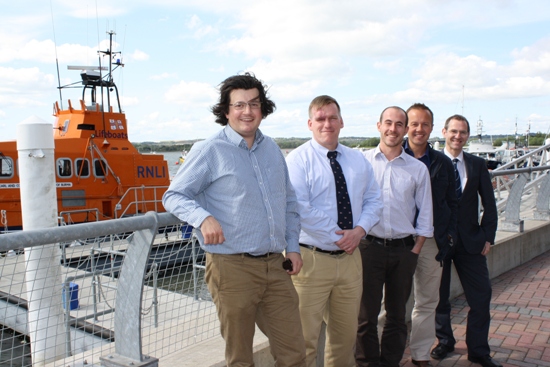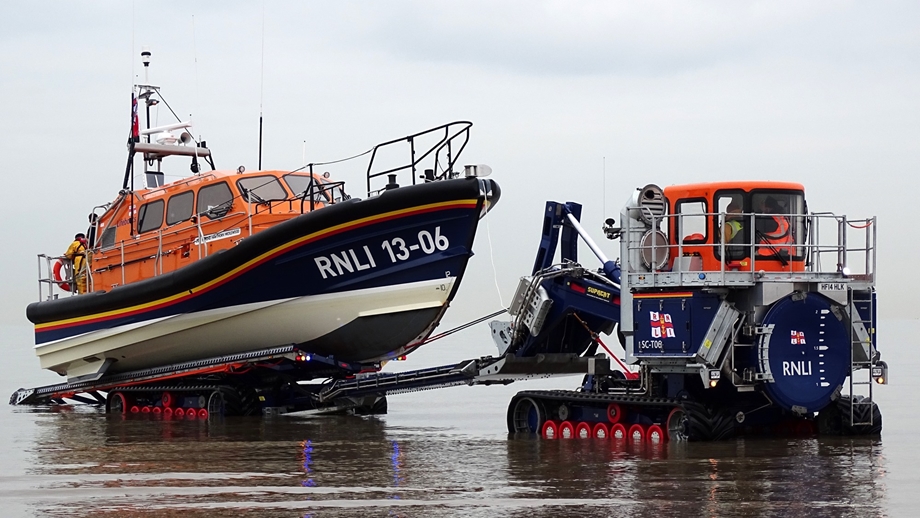Stay Safe
Working together to reduce accidents at sea
Every year the media reports the tragic news of anglers who have lost their lives while fishing. As the representative body for angling, the Angling Trust is trying to get more people fishing more often. We therefore recognise that we have a duty of care to ensure that all those anglers fishing at sea are aware and informed about the potential dangers and the measures they can take to ensure they continue to fish without putting themselves in danger.
In partnership with the RNLI, the Angling Trust has committed to trying to reduce the number of fatalities and incidents that occur through recreational sea angling.
We will be raising awareness of sea angling safety and aiming to inform anglers about the dangers and using a variety of methods to encourage them to take measures they can take to prevent themselves getting into trouble.
The first part of this project involved a survey which provided the RNLI with data about the profile of sea anglers and their experience of and attitudes toward coastal safety. Over 1,700 anglers completed the survey and the results provided valuable information so that safety messages and work undertaken by the RNLI can be better focused and targeted.
The Angling Trust has established and recommended safety guidelines for sea anglers, it has representation on both the steering and working groups of the Marine & Coastguard Agency and has played a full part along with the National Federation of Charter Skippers and the Professional Boatman’s Association in establishing Code of Practices for Charter Boats introduced in 1993 and the Inshore Code for boats operating from a nominated port of departure. This has set a standard and a legal obligation for boats which take anglers to sea, ensuring that they are as safe as possible and carry the required safety equipment.
We recommend that anglers only use those boats that are properly licensed for their area of operation and carry adequate insurance.
We also sit on the Royal National Lifeboat Institution’s, Non Regulation Pleasure Vessels Competence of Users Working Group, and have assisted in producing their ‘Angling Safety Booklet’, which has been issued this year. We totally support the work of the RNLI and in particular the Sea Safety Check Initiative, introduced in 1999, and destined to be a success and of great value for those who go to sea in small boats.

Angling Trust’s Head of Marine David Mitchell and the RNLI’s Coastal Safety Team
Be Safe Afloat
Have on board:
- Lifejackets for everyone
- Spare fuel
- Two anchors
- Ample rope
- Oars or spare engine
- Compass
- First Aid Box
- VHF Radio
- Lights
Before Sailing:
- Check weather and tides
- Wear suitable clothing
- Tell someone your expected return time
- Do not overcrowd your boat
- Do not take chances
Safety on Shore
At Night:
- Do not fish alone in remote spots
- Take more than one light
When Rock Fishing:
- Wear sensible footwear
- Take a rope
- Tell someone where you will be and your expected return time
- Be aware of rising tides, don’t be cut off
- Take care when casting
- Always carry a First Aid Kit
IN AN EMERGENCY DIAL 999 AND ASK FOR THE COASTGUARDS
Code of safety for organisers of dinghy festivals
- Scrutineers should be appointed to check the seaworthiness and safety equipment of all boats competing, before they are launched; reference Seaway Code. All boats to be adequately insured
- A numbered rigid flag should be provided to each boat, to be kept displayed throughout the fishing period, then handed into the committee on landing as check on safe return. The fishing area boundaries to be clearly defined and kept to a minimum distance seaward
- Each dinghy must have one member of the party willing to act as leader and captain, who is at all times responsible for the safety and welfare of all on board
- A safety and rescue patrol boat of good sea-keeping ability must be provided by the organising committee, to cruise about amongst the dinghies to be ready to give instant aid to competitors in difficulty. Such a boat to have VHF radio and licensed operator aboard
- A qualified seafarer to be judge of conditions being suitable for dinghies to go out to fish, and local weather forecast to be prominently displayed at launching place so that individuals may make their own decision whether to venture out or not
- H.M.Coastguard to be notified in good time of intention to run a “Dinghy Festival” and asked to set extra watches on the day
- Any dinghy in distress shall receive assistance from other competing craft able to help, in accordance with the custom of the sea
Small Boat safety advice
- While fishing you have to be on your guard at all times against capsizing the boat. Standing up when the boat is moving is dangerous
- Keep fish slime and bait from fouling the deck or bottom boards. Spare rods and gaffs etc left lying around can make you lose your footing
- Make a habit of keeping a good look out for vessels as angling boats not displaying adequate anchor signals will be indicating to ships and other vessels that the boat is under way and be able to keep clear as required by the International Collision Regulations. Be Warned
- Keep your anchor cable buoyed and ready to slip it in an emergency
- Keep a lookout for the onset of sea mist and for signs of bad weather coming up. The situation can change in a few minutes
- Have a radio and listen regularly to the weather forecast especially if you are a long way out
- Do not forget your compass and flares
An angler needs to have just as much knowledge and skill in handling his boat as any other boat user, and has to know how to catch fish as well. But fishing from a small boat has its own special hazards, and at sea you should not be so interested in the fishing that you forget all else.
The boat is not merely a means of putting you over a good fishing mark, you are trusting your life to it: make sure it is adequate for the purpose. To make a good fishing platform the boat should be broad-bottomed, the beam of width about a third the length, so that you do not have to be over anxious about your movements in her. You need space as well and this should be allowed for in the loading. Two people ought to have a boat of about 12ft to 14ft overall length and each extra person should have about another 2ft of length above that. Boats under 12ft in length are not really suitable for angling at sea.
Inflatable boats are not a good choice either because their lack of draught lets them be buffeted about at anchor, and also because of the risk of damage from sharp pointed gaffs and large hooks.
The boat should have a strong bow ring for towing and anchoring. Grab lines, fitted around the boat for anyone going overboard.
Carry a spare anchor, chain and warp of good length. Have clothing with you suited to whatever weather may turn up, but thigh length waders are not likely to be of much benefit and could prove disastrous if you fall overboard.
Launching and landing is usually on the beach. Learn to do this properly in calm conditions and then, with more experience, in a moderate surf. Before proceeding to sea tell someone ashore of your intentions and estimated time of return.
When choosing your fishing ground keep within a distance of base or shelter which you can make in good time when weather worsens according to the sort of vessels you have. It is safer to fish in company with others. Anchoring in or close to shipping lanes or buoyed fairways risks being run down and is a nuisance to other shipping.
It is often risky for small craft to round headlands, especially those with no safe haven beyond.
You will usually be anchoring in a current and at greater depths than most small boats. You must learn how to do this properly.
Anglers, like everyone else, should observe the Rules of the Road, but in addition they have to show proper signals of shapes when at anchor or fishing.










